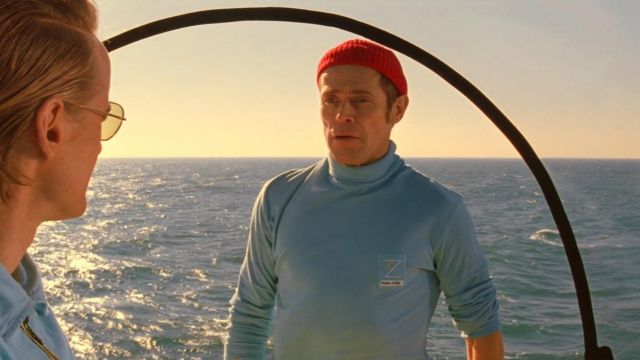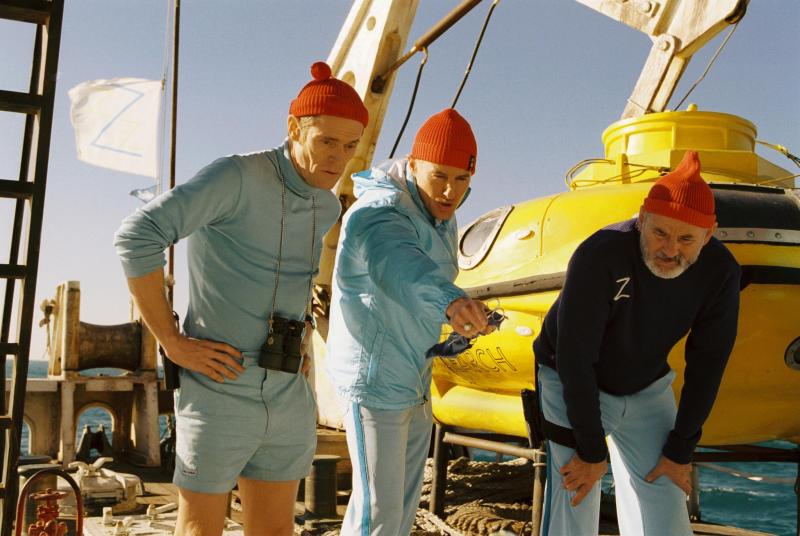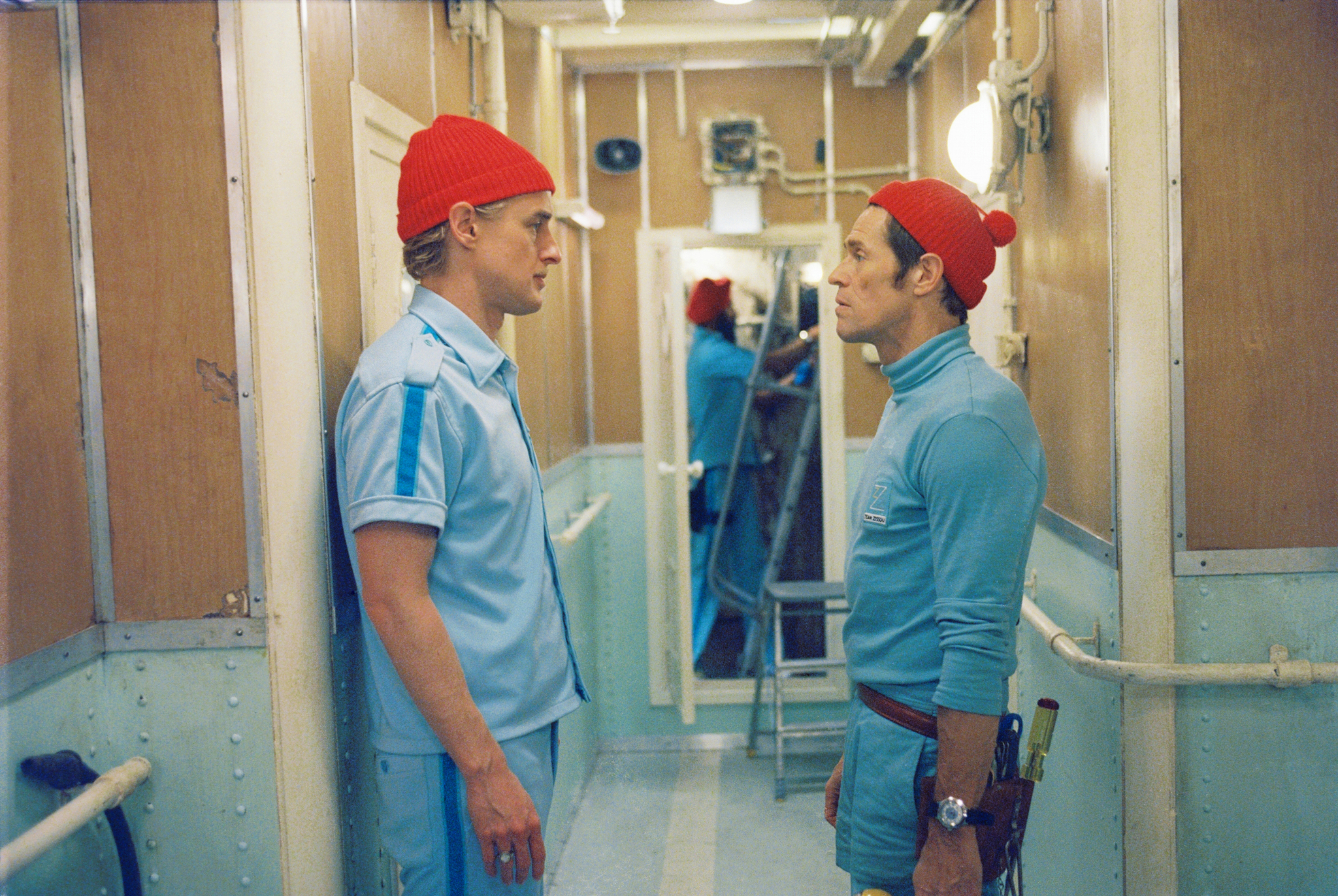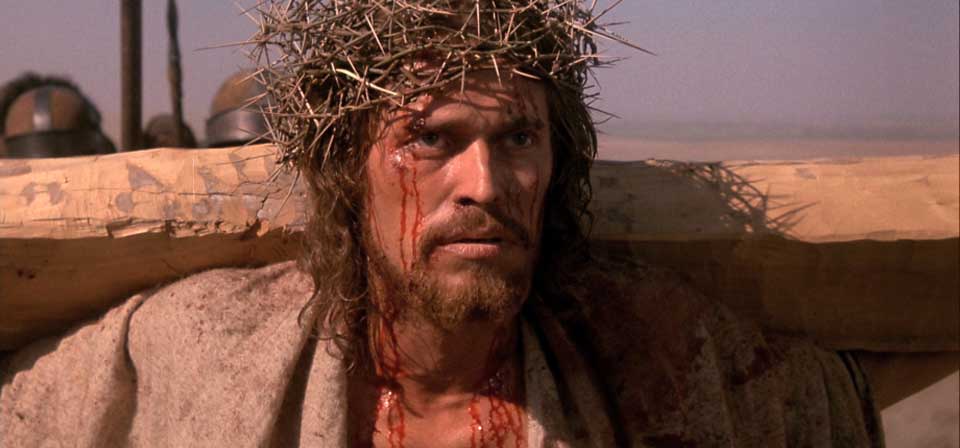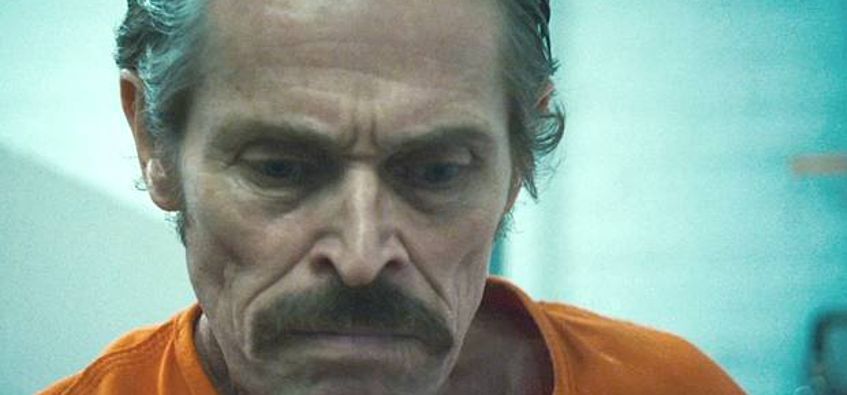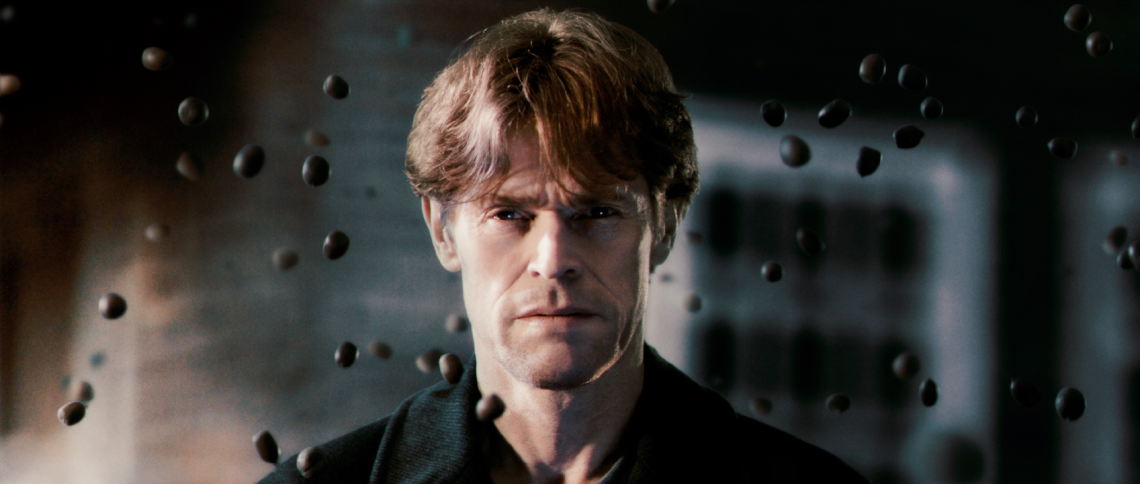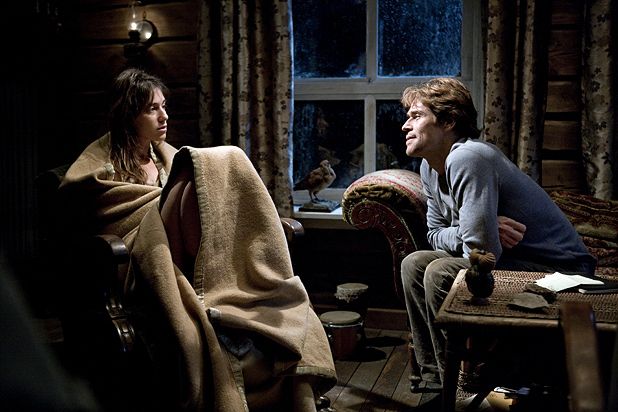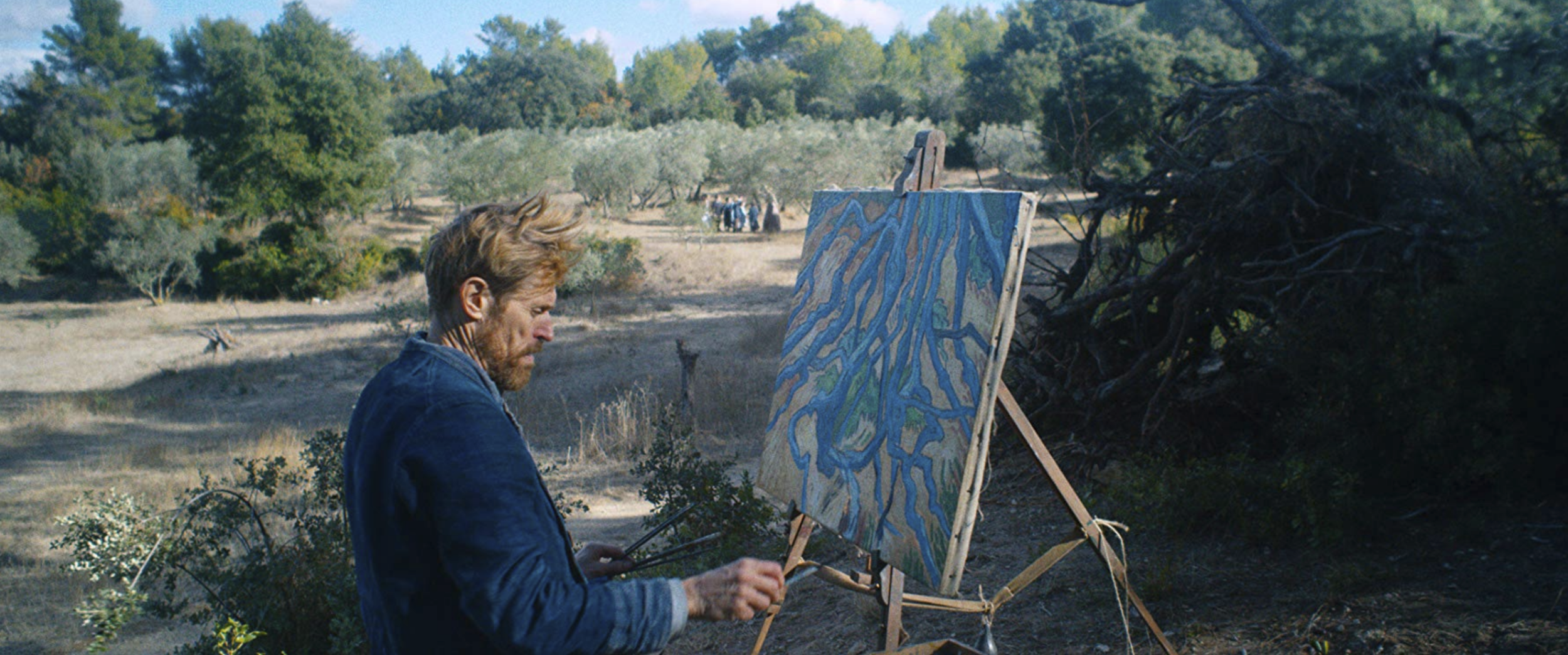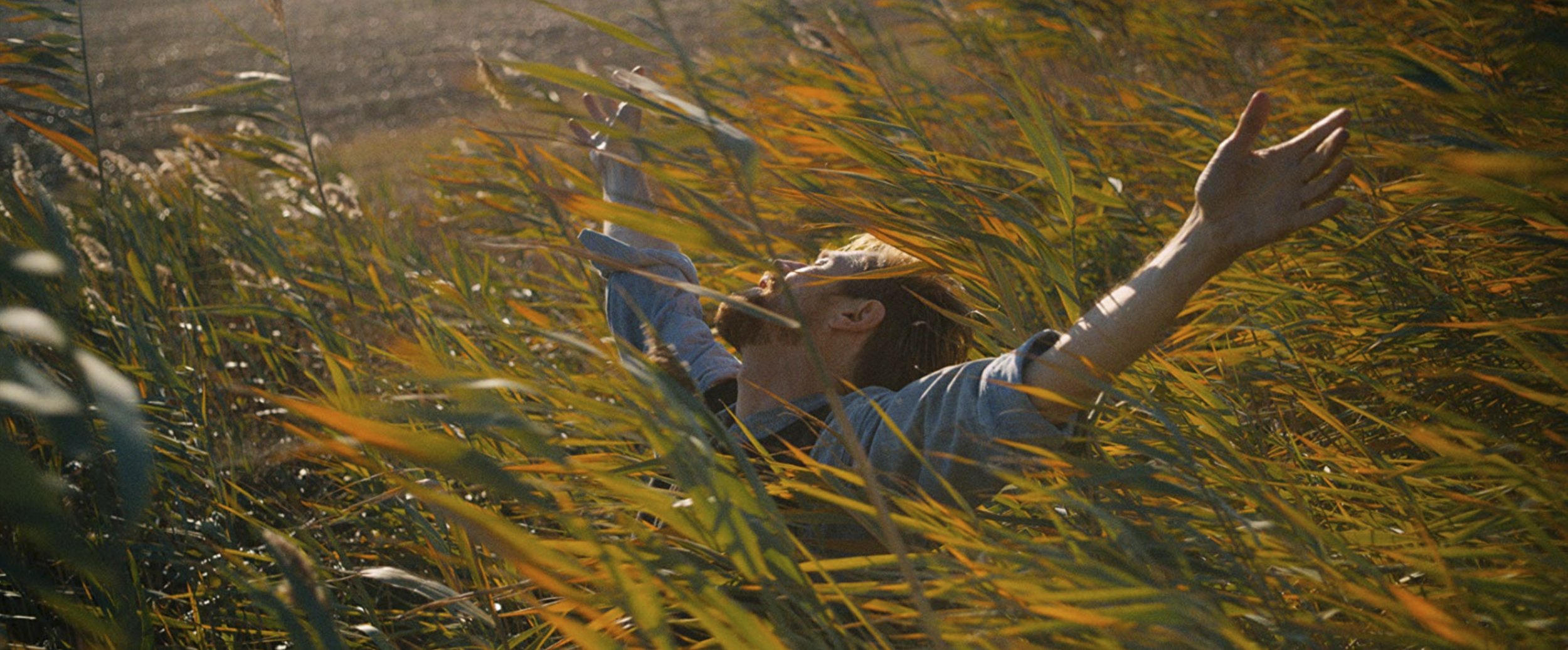Willem Dafoe: I AM The Lighthouse
The Lighthouse (2019) dir. Robert Eggers feat. Willem Dafoe as Thomas Wake and Robert Pattinson as Ephraim Winslow
Legendary actor, Willem Dafoe, has been nominated for four Academy Awards: Best Actor in a Supporting Role for Platoon, Best Actor in a Supporting Role for Shadow Of The Vampire, Best Actor in a Supporting Role for The Florida Project, for which he also received Golden Globe and Screen Actors Guild nominations, and most recently, Best Leading Actor for At Eternity's Gate, for which he also received a Golden Globe nomination.
This year, during the Cannes film festival, he sat with Nancy Tartaglione at the American Film Pavilion to discuss his latest film The LightHouse, directed by Robert Eggers, and shared some illuminating and well-earned wisdom behind his chameleon-like ability to transform into both real-life and larger-than-life fictional characters, in films by some of the best auteurs in the industry.
Willem Dafoe in Conversation with Natalie Tartaglione at the American Film Pavilion - © I AM FILM 2019
NT: Willem, thank you for being here.
WD: My pleasure.
NT: The Lighthouse is directed by Robert Eggers and you are co-starring next to Robert Pattinson. Robert said to me it was, “More dreadful than horror.” But, you had sought him out to work with him.
WD: Yes, Robert Egger’s first film, The Witch, I saw. I saw this movie and I thought, “Wow, this is a really beautifully-made movie. And who is this guy?” And later, I said to him, “I want to do something with you.” This was the the first thing that came up.
THE LIGHTHOUSE (2019) CANNES INTERVIEW - COURTESY OF VARIETY
NT: Can you describe it?
WD: I am always bad at that. It is set in the late 19th century. Two lighthouse keepers, one old and one new, go to a lighthouse that is perched on a rock far off the coast. But then, a storm comes and they can’t be picked up, and time kind of gets bent. It’s about what happens to people when they are in a confined space and they don’t know what the future holds for them.
NT: To see somebody’s work and decide that this might be somebody you want to be working with...Who are other directors you’ve done that with?
WD: Wes Anderson. I just said, “I got to meet this guy and get in his films.” I just loved him. He came to a theatre performance I was doing in New York and we went out for dinner afterwards. We hit it off fantastically. Like Robert, we had a good time; I got turned on by talking with him about what he was doing, what he is interested in. I thought, “Wow, I want to be in the same room with this guy and make something.”
And he [Wes Anderson] said, “Yeah, me too. But, we’ll probably be talking again in four to five years because I am ready to go with my new film. It’s all cast. This film called Life Aquatic, Adventures with Steve Zissou.” And I thought, “Oh ok, well, I tried.” And then, about two months later, an actor fell out, and he called me up and said “Listen, I think...”
NT: Under mysterious circumstances?
WD: I’m not that clever. [Laughs] Some guy, and I’m really good at never telling anyone who it was, I think he took a job in a bigger film that paid more money, and left Wes high and dry. So, Wes scrambled and he said, “Do you want to play this character called Klaus Diamler in Life Aquatic? So, it was a real pleasure. We shot in Rome, it was very fun. I like the movie a lot.
Life Aquatic, Adventures with Steve Zissou (2004) feat. Willem Dafoe as Klaus Diamler - courtesy of Life Aquatic Productions
NT: When you build, over a certain number of films, a relationship with a director, I imagine it evolves in different ways. You create short hands and all. How’s that process for you?
WD: It is always different, even with someone that I have worked with more than once. With Wes, with Lars Von Trier, with Paul Schrader, there’s people that I go back to and they come back to me. It’s not always the same process. So much is establishing a trust, and as you say, a communication.
When I say trust, I mean a deep trust. Helping each other and finding out where the sweet spot is together. I really enjoy attaching myself to someone’s vision. It might not necessarily be my vision. Part of my process of working on the performance or working on the film is to go towards their vision.
“When you do things for other people, I think you are free of certain types of prejudices; certain kinds of limitations you put on yourself. I think the results are much better. It feels more like a discovery, and you learn more, and there’s more possibility to be transformed.”
You don’t know where you’re going, but you have the security of someone else being responsible for where the journey is going, so that you can be in free fall. And on one hand, that feels irresponsible...But, on the other hand, it feels free because you’re not serving something you already know and you’re not serving an expectation that you have—whether it’s career wise, or some personal thing.
You get away from a certain kind of ego-based evaluation of what you are doing. So, you get much looser. And everyone is different. But, for me, that really works well.
So, I get in the room, I am with the person, they stimulate me, and it’s like, “What do you want to do?” And we won’t even talk about it sometimes, we’ll just start doing it. Basically, through me, they stand outside, and I start; I am the material and I love that.
NT: Can you do that with someone you are working with for the first time?
The Lighthouse (2019) feat. Willem Dafoe as Thomas Wake
WD: You try. I mean, if you hit it off and you get that trust and you have that chemistry immediately, yes. And sometimes you don’t. It’s not always necessary. To go deep, and really surprise yourself, it helps.
NT: You’ve said in the past, that sometimes, the process of filmmaking can actually eclipse the film itself. Could you expand on that and speak to that in terms of your theatre work?
WD: I saw The Lighthouse—great movie. I loved the movie....I don’t always think that way. And, as I watch it, I think back to the experience of making it. If it’s an exotic location or you’ve been through difficult things, or you’re learning something new, it’s a big episode in your life that is really valuable, and things happen to you that affect you deeply. The film is somewhat of a recording of that, but it is very condensed.
So, you’re seeing something that is managed, and condensed, and aesthetised. It’s not in your heart—the same thing as the living experience—much in the same way that when you are making these characters, you know it’s not a competition.
“But, when you can really identify with a character and feel real compassion and be changed by how you think, that changes your life.”
Now, that can be recorded in the film, but it’s not the same thing. I live my life, I have these adventures, I learn these things, I try to serve things, I try to change, find different ways of looking at things. That keeps me alive, that keeps me awake, that keeps me turned on. That’s the opportunity, and the film is some sort of product of that.
NT: Yes, absolutely.
WD: For almost 30 years, I worked at one theatre, everyday. A place called the Wooster Group in New York City. We made original pieces, and sometimes we did plays. Usually, we fragmented them and cut them up and re-tailored them. We toured a lot and we’d do lots of works-in-progress. It was like a laboratory.
It formed all my ideas and all my feelings about performing, and art, and life. But that was almost like a practice; you’re constantly working on these pieces. We would even rehearse on tour—a show that we’ve done for 20 years.
Willem Dafoe in The Life and Death of Marina Abramovic. - Photo by Lucie Jansch
It is very different when you keep on returning to the same things. It’s like a musician returning to the same piece of music, that’s the big difference. You know, you work on a film, you do a location, you’re there for the day, and then you move on. There’s no going back.
Whereas in the theatre, regardless of what kind of theatre it is, or how loose the score is, if it is improvisation or how much of it has been stylised, how naturalistic or theatrical it is, you are still basically re-animating a score, that you make over and over and over again.
So, that’s more like—it’s an adventure. It’s practice, like a daily practice, that’s the big difference.
NT: Given how prolific you have been in your film career—over 100 films, four Oscar nominations, a couple of them just recently. When do you not work?
AT ETERNITY’S GATE OFFICIAL TRAILER
WD: When there’s nothing to do. You know, what you decide to do is relative to what is presented to you. Let’s face it. And your taste and your appetite is relative to that. I never have been and probably will never be in the driver’s seat, and that’s good, because it keeps you on your toes.
I actually don’t like stacking things up too much because I hate the idea that you commit to something, and then, a year later, you change so much in that year, and you’re like, “Wait a second, do I want to do this now?”
I think this happens to big movie stars, you know, the 20-million dollar guys. Then, they get stuck, and then, they have to grunt it out, you know. I don’t want to be and I haven’t been in that position. I work when I find interesting things to do.
But, I will say that I am like a farm animal, or like a sled dog. I feel good when I am working because I think you have to practice, you have to be in movement. It’s not really a career thing, it’s a body thing; it’s a waking up in the morning and knowing where to direct your energy. I like building my life around this activity.
NT: I want to go back to the earlier part of your career. Was it a very conscious effort to get away from that potential pitfall of being type-cast?
WD: I think I’ve always been open to trying to different things. That’s my taste.
“If I don’t know where I am and I have to start from scratch, and I have nothing to compare it to, that’s usually where I feel best. So, I try to create that situation.”
In the beginning of my career, yes, I was worried about type-casting because there’s a tendency to brand you, and particularly if you’re making movies in Hollywood. They want to have you stand for something, so you can slide into casting. It makes sense; you become part of a language. You know, let’s get that guy, that does that thing. I wanted to avoid that because I thought it was a dead-end.
When I first started out, I was working in the theatre, which was an avant-garde theatre. So, I was getting off on my art there—and not that I was cynical about Hollywood—but, I was probably more interested in being in commercial films in those days, you know. And probably, unfortunately for me, that was kind of the rise of independent cinema.
I’ve always been attracted to auteurs. I want to be transformed. I don’t want to deliver the goods, you know? For me, personally, I like performances that disappear. Not just like, “Oh you don’t look like yourself. I mean, deeply disappearing, fabricating, moving, as opposed to someone who comes up and does their thing that you love because they are hitting all the buttons...you know, they are displaying what you like about them in a very attractive way.
At Eternity’s Gate (2018) - Feat. Willem Dafoe as Van Gogh
I’ve never been interested or confident in that. With time, I have developed instincts. I’ve never been like an Actor. I’ve never felt like that. I try to be a person.
NT: Did you need to be convinced for Aquaman?
WD: Not at all. Not at all. And it pisses me off a little bit when people kind of wink at me and say, “Hey Spiderman, huh?” - while rubbing their hands together - as if it was just about it money. It was a good project, and that was not what it was about.
NT: You played a number of real-life superheroes. We can talk about Pasolini, we can talk about Jesus Christ...
WD: We can always talk about Jesus. [Laughs] Van Gogh. T.S. Elliot. All the people we can learn a great deal from. All very different movies. The beauty of working on real-life characters; using them as material, is there’s so much stuff to immerse yourself in, to work on you.
With Van Gogh, I learned how to paint. We were shooting in the places he was. Those things work on you, and you don’t try to represent or try to explain. But, you try to have the experience of imagining who they were and once again, then that’s the experience of the movie.
NT: Going forward, is there a real-life person you want to play?
WD: No, I don’t have much of an imagination about, “Oh I want to do this.” I think when you say, “Oh, I want to play, maybe someone like...Joe Demargio,” you have certain ideas that are already formed and that’s hard to break.
I guess, it’s fine to chase that, but it doesn’t come naturally to me because then I feel like it’s a show, and once again, I’m strutting the brand or something, and that’s not what I’m interested in. That’s not where I find my most precious opportunities. So, I usually like someone else to say there’s something out there, and I might go towards it.
NT: What drives your creativity?
“You’re not serving yourself and I think that’s so important, ultimately. You know the material so deeply that it’s above you, but you don’t have a calculated; ‘If I do this, I get this.’ You have a much deeper, ‘I do this, to do this.’ And that’s kind of the secret of performing because you can get ahead and think of effect too much and think of what an audience needs too much.”
WD: You get into a game of everything is predicatable and you’re limited by your cleverness, your intelligence, your experience, where if you’re going towards something where you don’t know what it is, it can open you up. And if your engagement is pure and disciplined, and full, it opens you up emotionally and mentally, in a way you can’t imagine.
It’s like, I always say, “It’s a little bit like falling in love.” You find the better part of yourself.
NT: Clearly, you seem open to any challenge. We were just talking about the movie with the sled-dogs and those kinds of negative 40-degrees celsius temperatures, or whether it’s taking on Van Gogh, or just taking on the challenge of Abel Ferrara.
WD: The beautiful challenge of Abel Ferrara.
PASOLINI (2019) OFFICIAL TRAILER
NT: Do you see yourself continuing along these lines or is there anything that scares you?
WD: I’m sure, but I don’t know what it is now. I’ll tell you when I’m doin’ it. I mean, actors often say this, and it’s still true for me: Whenever I start something, you have to imagine what it is you’re doing and have enough engagement to get on the path of working on it. But, not so much that it completes itself. So, I’m always a little afraid because I don’t know where I’m going.
If you can find that state of being afraid comfortable, and not push it away, but take it on, and say, “This feeds me, it pushes me,” and that usually applies to that thing that I said about, “I don’t know about sled dogs, but I have to learn about sled dogs because that’s what I do in the film. I don’t know about painting, but I have to learn about painting.”
Willem Dafoe in upcoming Disney film TOGO - courtesy of DisneyInsider
And in learning about painting, I’m changed. And through those changes, I see in a different way. I apply those to the things that I hear Van Gogh say and I’m able to have a different relationship to what he says, than I would if I wasn’t painting.
So, these things that I don’t know, that scare me and I don’t know if I’m good at them or not—I have a relationship to.
So, if acting is pretending, then, an important part of pretending is having the authority and feeling the right to pretend; that’s what research is about. So, I always, even when I’m scared of things, I get scared enough that I say, ‘This is a good place to be.’
Robert Eggers’ The Lighthouse starring Dafoe and Pattinson was awarded the best movie at Cannes’ Critics Week and Directors’ Fortnight by the International Federation of Film Critics (FIPRESCI). The Lighthouse premiered in the Directors’ Fortnight sidebar during the Cannes Film Festival and is being released by A24.
You can follow I AM FILM on Instagram (iamfilmofficial) #IAMFILM #MastersOfFilm and Join our list to receive more news and views by the Masters Of Film in Cannes.
About the filmmaker
Willem Dafoe
Actor, Filmmaker
Having made over one hundred films in his legendary career, Willem Dafoe is internationally respected for bringing versatility, boldness, and dare to some of the most iconic films of our time. His artistic curiosity in exploring the human condition leads him to projects all over the world, large and small, Hollywood films as well as Independent cinema. In 1979, he was given a role in Michael's Cimino's Heaven's Gate, from which he was fired. Since then, he has collaborated with directors who represent a virtual encyclopedia of modern cinema: Kathryn Bigelow, Sam Raimi, Alan Parker, Walter Hill, Mary Harron, Wim Wenders, Anton Corbijn, Zhang Yimou, Wes Anderson, Martin Scorsese, David Lynch, Oliver Stone, William Friedkin, Werner Herzog, Lars Von Trier, Abel Ferrara, Spike Lee, Julian Schnabel, David Cronenberg, Paul Schrader, Anthony Minghella, Scott Cooper, Theo Angelopoulos, Christian Carion, Robert Rodriguez, Phillip Noyce, Hector Babenco, John Milius, Roger Donaldson, Paul McGuigan, Lee Tamahori, Roger Spottiswoode, Paul Weitz, Daniel Nettheim, The Spierig Brothers, Andrew Stanton, and Josh Boone.
Dafoe has been recognised with four Academy Award nominations: Best Actor in a Supporting Role for Platoon, Best Actor in a Supporting Role for Shadow Of The Vampire, for which he also received Golden Globe and Screen Actors Guild nominations, Best Actor in a Supporting Role for The Florida Project, for which he also received Golden Globe and Screen Actors Guild nominations, and most recently, Best Leading Actor for At Eternity's Gate, for which he also received a Golden Globe nomination. Among his other nominations and awards, he has received two Los Angeles Film Critics Awards, a New York Film Critics Circle Award, a National Board of Review Award, an Independent Spirit Award, Venice Film Festival Volpi Cup, as well as a Berlinale Honorary Golden Bear for Lifetime Achievement.




